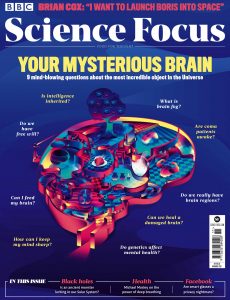
BBC Science Focus – November 2021
English | 92 pages | pdf | 57.09 MB
Welcome at BBC Science Focus magazine November 2021 issue
I touched a human brain once. At university, while I was studying psychology, a professor invited us to sign up for an extracurricular course on brain dissection: to study and understand the structures and geography of the thing we had been learning about. I signed up. It didn’t seem like the kind of opportunity that came around often.
Before the first lesson, I was nervous and excited. To take part in any dissection is an honour. Bodies donated to science are a special gift, and so students are reminded that it’s a privilege to be able to learn in this way. My brain was going to touch another brain with its hands and I was prepared for whatever revelation that might bring.
“Well, that’s weirdly beige,” was my first thought. Not very profound. Post-mortem, the preservation procedure turns a brain into what looks like a wet, brown blob of sculpted putty. The textbooks I had been learning from painted the brain as a thing of electricity, made of neurons that spark and create thoughts that spread like lightning through its structures. But sat in front of me on a lab bench, the brain had been cruelly robbed of its splendour.
Since then I’ve been obsessed with how the thing I saw creates the human experience. In recent years, neuroscience has been spectacular at piecing together how the brain sees the world, and uses the data it gathers to make decisions and form a sense of self. But the more we learn, the more we realise how much we don’t understand. So this magazine issue is dedicated to just that: the questions at the forefront of our study of the brain, and how this lump of tissue can create the most incredible thing in the Universe: a human mind.
Enjoy the issue!
Daniel Bennett, Editor
Download from: